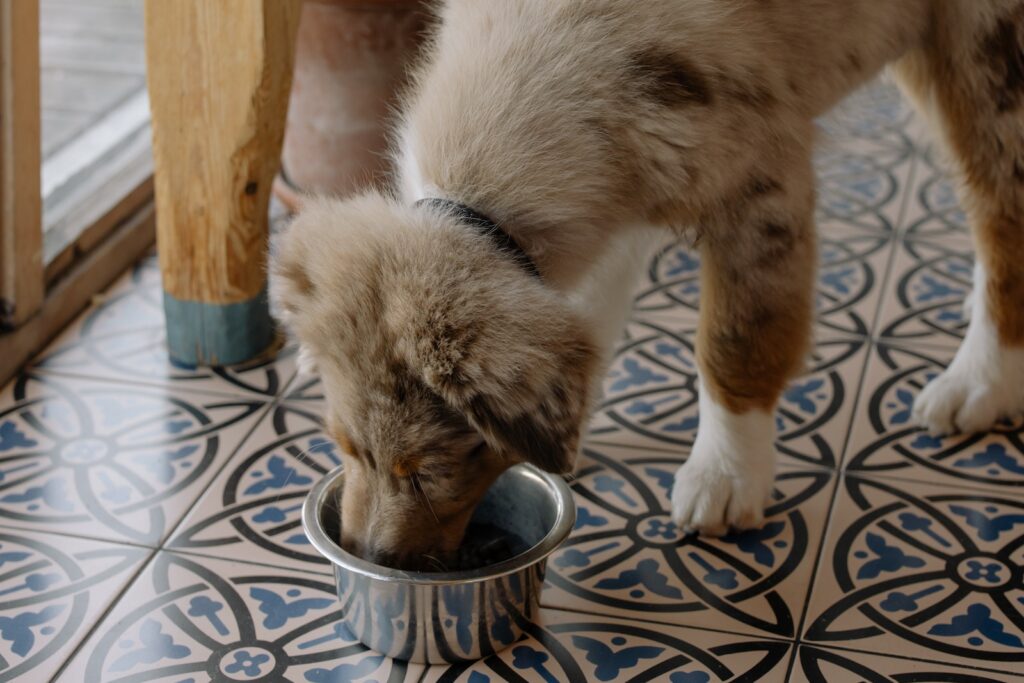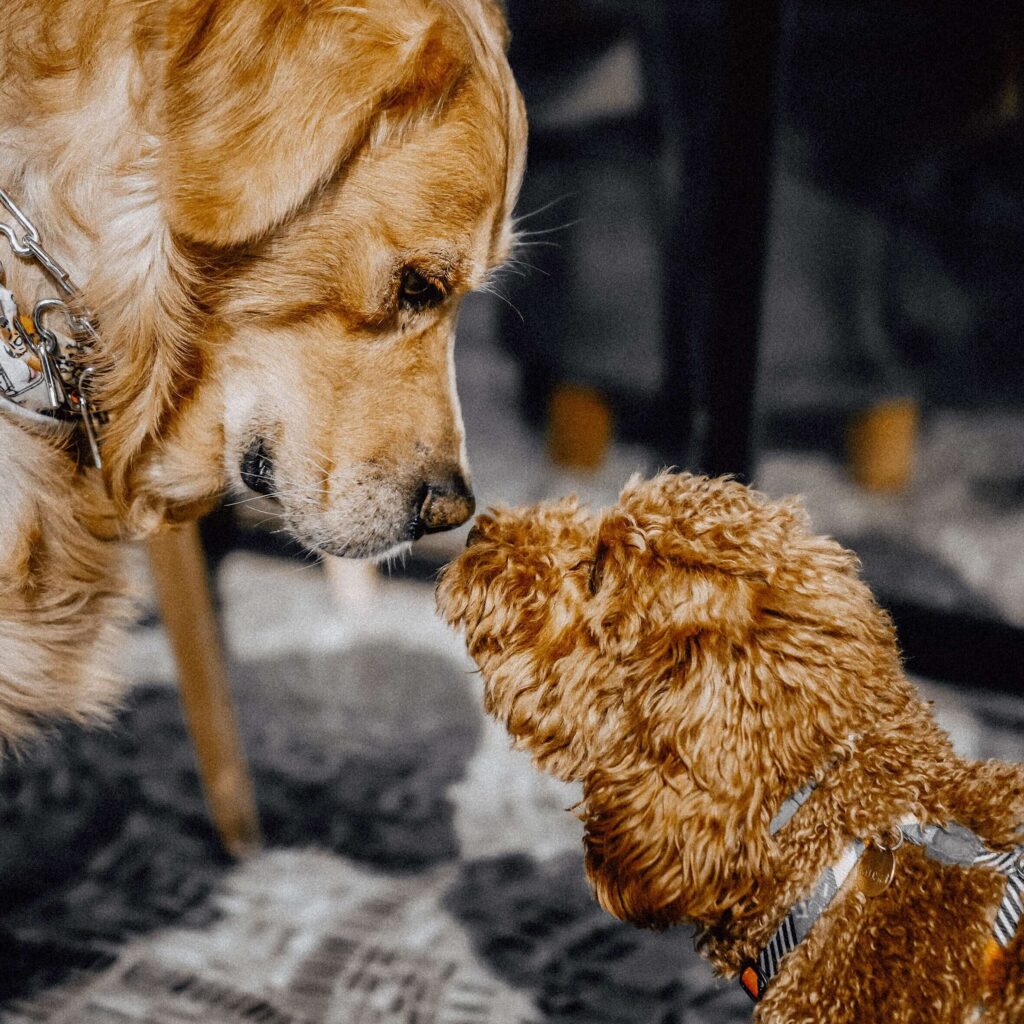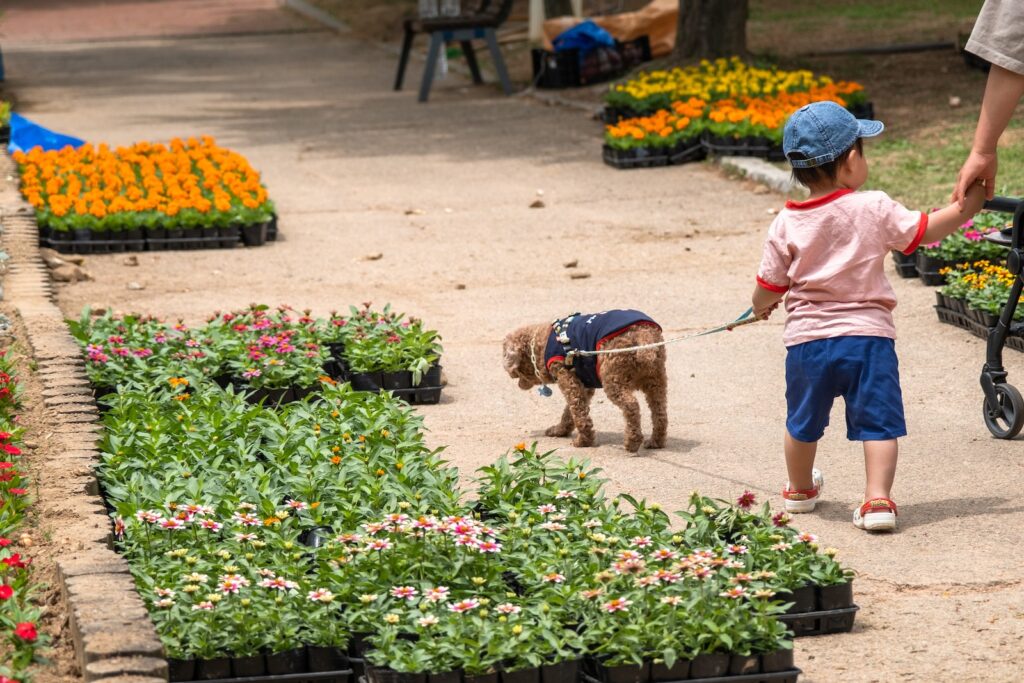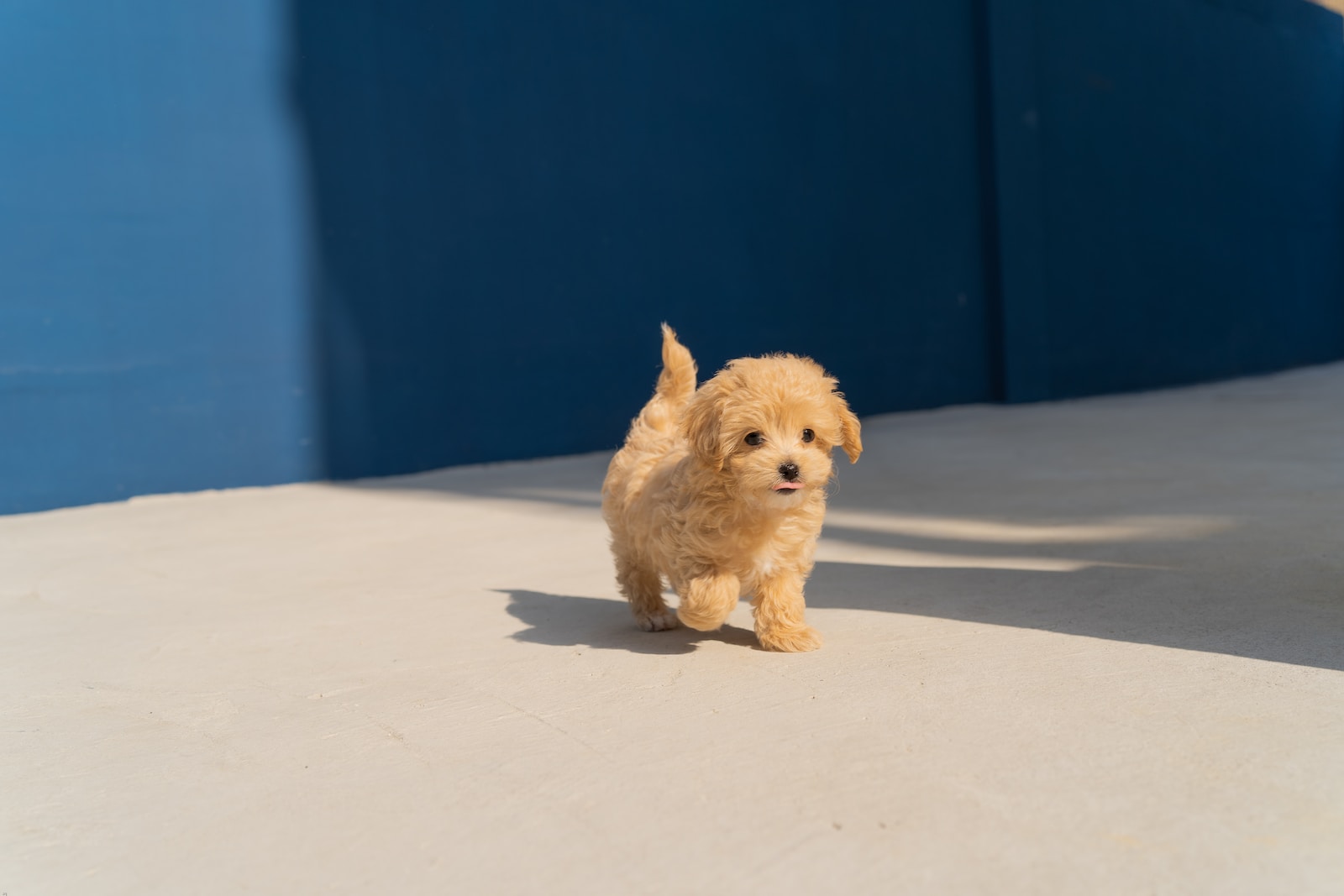The Ultimate Puppy Doodle Checklist: Preparing for Your New Furry Friend
Introduction
Congratulations on your decision to bring a puppy doodle into your life! These adorable, intelligent, and loving dogs make fantastic companions. However, like any pet, they require some preparation to ensure a smooth transition into their new home. This guide aims to provide you with a comprehensive checklist to prepare for your new furry friend, covering everything from understanding your doodle puppy’s needs to setting up your home and more. So, let’s get started, shall we?
Table of Contents
Understanding Your Doodle Puppy’s Needs
Nutritional Needs
When it comes to feeding your doodle puppy, not just any dog food will do. Puppies have specific nutritional needs that differ from adult dogs. It’s crucial to choose a high-quality puppy food that is rich in protein and has the right balance of nutrients. Most vets recommend feeding your puppy three to four times a day until they are six months old. After that, you can switch to twice-daily feedings.
Look for puppy food that lists a source of animal protein, like chicken or lamb, as the first ingredient. Avoid foods that are primarily made up of fillers like corn and soy.
But what about treats? While it’s tempting to spoil your new pup, be cautious. Many human foods are toxic to dogs, including chocolate, grapes, and onions. Stick to puppy-safe treats and use them sparingly, especially during training.

According to a Whole Dog Journal article, it’s essential to establish a consistent feeding routine. Consistency helps with digestion and makes potty training easier.
Exercise Requirements
Doodle puppies are known for their boundless energy. Regular exercise is not just good for their physical health but also crucial for their mental well-being. Aim for at least 30 minutes to an hour of exercise each day. This can include walks, playtime, or even puppy-friendly obstacle courses.
Invest in some interactive toys that can stimulate your doodle's mind. Puzzle toys where they have to figure out how to get a treat can keep them engaged for hours.
Mental stimulation is just as important as physical activity. Training sessions, puzzle toys, and social interactions are excellent ways to keep your doodle puppy mentally engaged.
Socialization Needs
Socialization is a critical aspect of your doodle puppy’s development. The earlier you start, the better. Introduce your puppy to various environments, people, and other animals. This will help them grow up to be a well-adjusted adult dog.

Enroll in a puppy socialization class. These classes offer a safe and controlled environment for your puppy to learn important social skills.
Remember, socialization should be a gradual process. Don’t overwhelm your puppy with too many new experiences at once. And always keep your vet’s vaccination recommendations in mind when introducing your pup to new animals.
Setting Up Your Home for a Doodle Puppy
Creating a Safe Space
Before your doodle puppy arrives, it’s crucial to puppy-proof your home. Just like toddlers, puppies are curious and will explore every nook and cranny. Remove any hazardous items like electrical cords, small objects that can be swallowed, and toxic plants.
Use baby gates to block off areas of the house that are off-limits to your puppy. This not only keeps them safe but also helps with house training.
The Importance of a Good Crate
A crate is more than just a cage; it’s your puppy’s own private space where they can feel secure. It’s also an invaluable tool for house training. When choosing a crate, make sure it’s large enough for your doodle to stand, turn around, and lie down comfortably but not so large that they might use one end as a bathroom.
Add some soft bedding and a few toys to make the crate more inviting. You can also cover it with a blanket to create a "den-like" atmosphere.
According to the American Kennel Club, crate training is an essential part of a puppy’s routine. It helps with house training and provides a safe environment for your puppy when you’re not around.
Essential Supplies
You’ll need to stock up on some basic supplies before bringing your doodle puppy home. These include:
- Food and water bowls
- Puppy food
- Leash and collar
- Chew toys
- Grooming supplies like a brush and puppy-safe shampoo
- Identification tag with your contact information
Consider getting an adjustable collar as your puppy will grow quickly. Also, a harness might be a better option for doodles, as it takes the pressure off their neck during walks.
Preparing Family Members
If you have kids or other pets, it’s essential to prepare them for the new arrival. Teach children how to interact safely with the puppy and set boundaries. If you have other pets, introduce them to the new puppy gradually and under controlled conditions to ensure a smooth transition.

Action Tip: Have a family meeting to discuss the responsibilities of caring for the new puppy. Assign tasks like feeding, walking, and grooming to different family members to share the load.
Training Essentials for Your Doodle Puppy
The First Few Days: Building Trust
The first few days with your new doodle puppy are all about building trust and setting the stage for future training. Your puppy will be in a new environment, away from its mother and littermates, so it’s crucial to make them feel secure and loved.
Spend quality time with your puppy, engaging in gentle play and offering treats for good behavior. This will help establish you as their trusted leader.
Basic Commands: Sit, Stay, Come
Training should start as soon as your doodle puppy gets home. Basic commands like ‘Sit,’ ‘Stay,’ and ‘Come’ are essential for their safety and your sanity. Use positive reinforcement techniques, rewarding good behavior with treats and praise.
Keep training sessions short and fun. Puppies have short attention spans, so it's better to have multiple short sessions throughout the day rather than one long one.
According to Doodle Doods, doodles are intelligent but can be a bit stubborn. Consistency and positive reinforcement are key to successful training.
Socialization: Meeting People and Other Pets
Socialization is a critical aspect of your doodle puppy’s development. Expose them to different people, pets, and environments to help them become well-rounded adults.
Enroll in a puppy socialization class or regularly visit dog-friendly parks to give your doodle puppy opportunities to interact with other dogs.
Leash Training: Mastering the Walk
Leash training is essential, especially if you live in an urban area. Start by letting your doodle puppy wear the leash around the house, then progress to short walks around the yard or neighborhood.
Use a front-attaching harness to discourage pulling and give you better control during walks.
House Training: Setting a Routine
House training is often the most daunting task for new puppy owners, but a consistent routine can make it easier. Take your doodle puppy outside first thing in the morning, last thing at night, and after meals.
Use a keyword like 'potty' every time you take them out and reward them with a treat and praise when they do their business.
According to American Kennel Club, setting a routine is crucial for successful house training. Make sure everyone in the household is on the same page to avoid confusing your puppy.
Healthcare Needs for Your Doodle Puppy
Vaccinations: Protecting Against Diseases
One of the first things you should do after bringing your doodle puppy home is schedule a vet visit for vaccinations. Puppies are vulnerable to a variety of diseases, and vaccinations are the best way to protect them.
Keep a vaccination record and adhere to the schedule recommended by your vet.
Regular Check-ups: Monitoring Growth and Health
Regular vet check-ups are essential for monitoring your doodle puppy’s growth and overall health. These visits are also an opportunity for you to ask any questions you may have about your puppy’s development, behavior, or diet.
Schedule regular vet visits, at least once a year, for a comprehensive health check-up.
Dental Care: Keeping Those Pearly Whites Shiny
Dental care is often overlooked but is crucial for your doodle puppy’s long-term health. Dental issues can lead to more severe health problems if not addressed.
Introduce a dental care routine early on, including teeth brushing and dental chews.
Spaying/Neutering: The Ethical Choice
Spaying or neutering is not just about preventing unwanted litters; it also has health benefits for your doodle. For example, spaying can prevent uterine infections and breast tumors in female dogs.
Consult your vet about the best time to spay or neuter your doodle puppy.
Diet and Nutrition: Fuel for Growth
Your doodle puppy’s diet plays a significant role in their development. A balanced diet rich in essential nutrients will ensure that your puppy grows up to be a healthy adult dog.
Choose high-quality puppy food and consult your vet for feeding guidelines based on your doodle puppy's age, weight, and activity level.
According to Doodle Doods, a balanced diet is crucial for your doodle’s long-term health. Make sure to consult your vet for personalized advice tailored to your puppy’s needs.
Fun and Games: Toys and Activities for Your Doodle Puppy
The Importance of Playtime
Playtime isn’t just about fun and games; it’s also crucial for your doodle puppy’s physical and mental development. Engaging in regular play helps your puppy learn important social skills, improves their cognitive abilities, and provides an outlet for their boundless energy.
Dedicate specific times each day for play to help your puppy burn off energy and learn new skills.
Choosing the Right Toys
Not all toys are created equal, especially when it comes to doodle puppies known for their intelligence and energy. Opt for toys that are not only durable but also offer some form of mental stimulation.
Look for puzzle toys that can be filled with treats to keep your doodle puppy engaged for longer periods.
Outdoor Activities: More than Just Walks
While walks are essential, doodle puppies also benefit from other forms of outdoor activities. Consider activities like fetch, frisbee, or even agility courses designed for dogs.
Start with short sessions and gradually increase the time as your puppy gets more comfortable with the activity.
Socialization: Playdates and Puppy Classes
Socialization is a critical aspect of your doodle puppy’s development. Regular interaction with other dogs and people will help your puppy grow into a well-adjusted adult dog.
Enroll your doodle puppy in socialization classes or arrange playdates with other dogs.
Exercise Needs: Keeping that Doodle Energy in Check
Doodle puppies are known for their high energy levels. Regular exercise is crucial to keep your puppy healthy and to prevent behavioral issues that arise from a lack of physical activity.
Aim for at least 30 minutes to an hour of exercise each day for your doodle puppy.
According to PetRescue, regular exercise and mental stimulation are key to keeping your doodle puppy happy and healthy. Make sure to consult your vet for personalized exercise guidelines tailored to your puppy’s needs.
Grooming and Hygiene: Keeping Your Doodle Puppy Clean and Healthy
The Basics of Grooming: What You Need to Know
Grooming is not just about keeping your doodle puppy looking good; it’s also about maintaining their overall health. Regular grooming helps to remove dirt, spread natural oils throughout the coat, and prevent tangles and mats. It’s also an excellent opportunity to check for signs of skin problems, ticks, or other health issues.
Start grooming routines early to get your doodle puppy accustomed to the process.
Essential Grooming Tools
When it comes to grooming your doodle puppy, having the right tools can make all the difference. Some must-haves include a good quality brush, dog-safe shampoo and conditioner, nail clippers, and ear cleaning solutions.
Invest in a grooming kit that includes all the essentials to make the process easier and more efficient.
Bath Time: How Often and What to Use
Contrary to popular belief, you don’t need to bathe your doodle puppy too frequently. Overbathing can strip the natural oils from their coat, leading to dry, itchy skin. Aim for a bath every 3-4 weeks or as needed.
Use a dog-specific shampoo that is suitable for your doodle's coat type.
Dental Care: More Than Just Fresh Breath
Dental care is often overlooked but is crucial for your doodle puppy’s overall health. Regular brushing and dental chews can help prevent plaque buildup and bad breath.
Start with a finger brush to get your doodle puppy used to the sensation before moving on to a dog toothbrush.
Professional Grooming: When to Start and How Often
While regular at-home grooming is essential, professional grooming services can offer a more thorough clean and can take care of tasks that you might find challenging, like trimming the fur around the eyes or cutting nails.
Consider taking your doodle puppy for their first professional grooming session after they've received all their puppy vaccinations.
According to Pride & Prejudoodles, research is key before beginning any grooming routine. Make sure to consult your vet for personalized grooming guidelines tailored to your puppy’s needs.
Conclusion: Your Ultimate Doodle Puppy Checklist
Congratulations! You’re now armed with a comprehensive checklist to prepare for your new doodle puppy. From essential supplies to training and socialization, we’ve covered all the bases to ensure you and your doodle have a smooth start. Remember, preparation is key, and the more you invest in these early stages, the more rewarding your experience will be. So go ahead, tick off those boxes on your checklist and get ready to welcome your new furry friend into your life.
Keep this checklist handy and refer back to it as you go along. Your doodle will thank you!
Frequently Asked Questions
- What are the most essential items I need before bringing a doodle puppy home?
- The most essential items include a crate, food and water bowls, puppy food, collar and leash, and toys.
- How soon should I start training my doodle puppy?
- The earlier, the better. Basic training can start as early as 8 weeks old.
- What are some good ways to socialize my doodle?
- Exposure to different environments, people, and animals is key. Consider puppy classes, trips to the park, and playdates with other dogs.
- How can I make the crate a positive space for my doodle?
- Add comfortable bedding, toys, and even an item of your clothing to make it feel like a safe space.
- What should I do if my doodle is showing signs of separation anxiety?
- Gradual desensitization can help. Start by leaving for short periods and gradually increase the time. Always make your departures and arrivals low-key.
And there you have it! Your ultimate guide to preparing for a new doodle puppy. Good luck, and enjoy the incredible journey ahead with your new furry friend!

